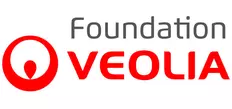The award recognizes the MODEAB project (Sustainable Project Management in the Water and Sanitation area in Bangangté) that the Fondation Veolia has supported financially and through skills volunteering from the project's outset.
Nearing completion, the project has improved access to water and sanitation for much of the community's 200,000 inhabitants as well as establishing essential conditions for sustainability, strengthening local management, organizational, project management and follow-up evaluation capabilities.
The foundation put in place an innovative system of water management services. Private mini-operators manage drinking water systems while water user committees ensure the rights of the population, particularly with regard to water prices. A communal structure was also established to support and monitor the system's functioning.
The foundation was able to convince and mobilize other partners, including the AIMF (International Association of Francophone Mayors), the SIAAP (the Greater Paris interdepartmental sanitation syndicate) and the Seine-Normandy water agency, to support the project, in contrast with the community management systems typically implemented in Cameroon.
The Bangangté project seeks to serve as a model for other communities in Cameroon where the majority of the 350 drinking water systems, built in the 1980s with Danish help, no longer work due to a lack of monitoring and skills to maintain them.


